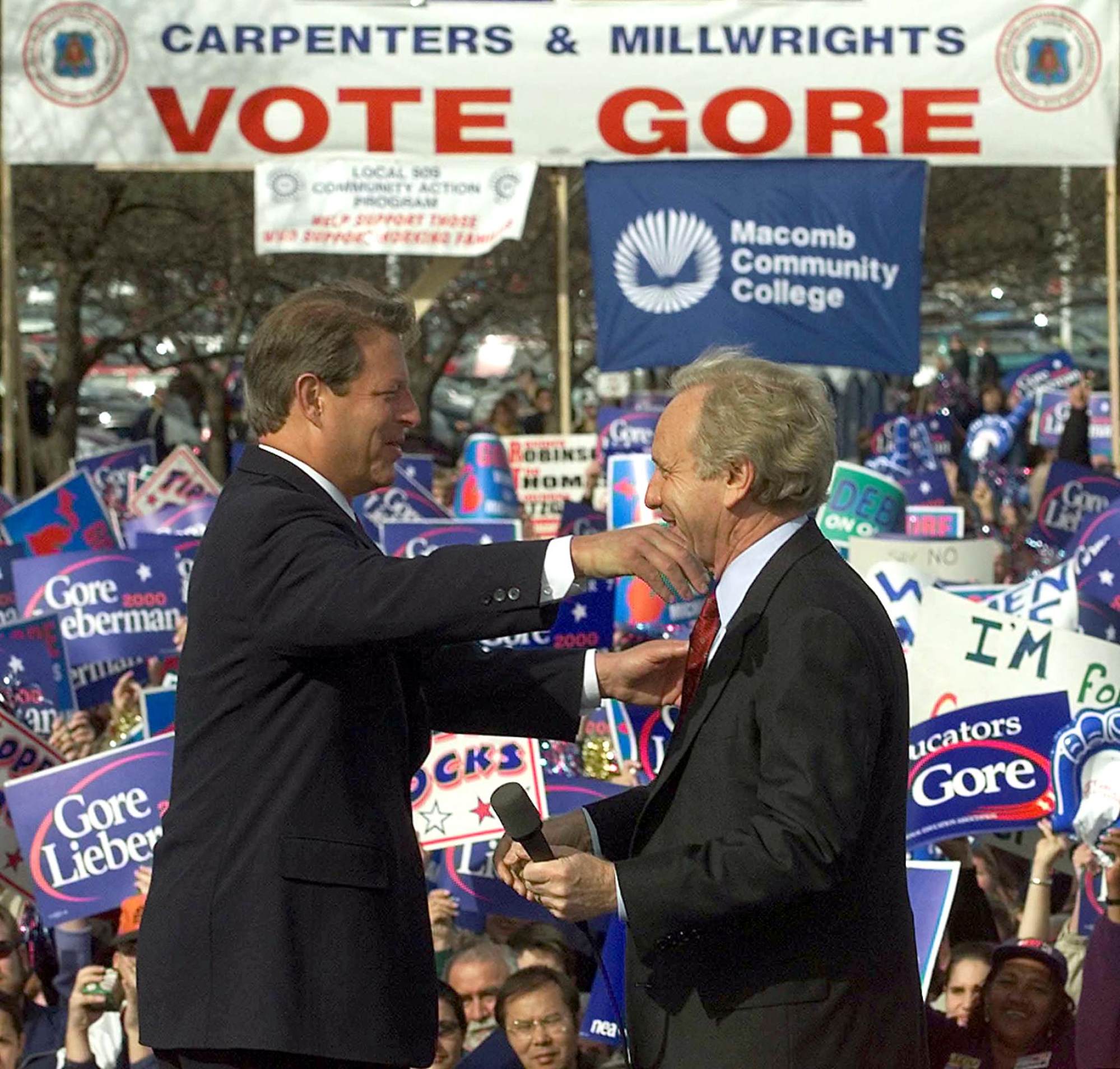Joe Lieberman, who made history as the first Jewish vice-presidential candidate for a major US party and lately returned to the spotlight as a leader of a push for a third candidate in the 2024 election, died on Wednesday, US media reported.
Lieberman died in New York City at the age of 82 “due to complications from a fall”, his family said in a statement carried by US media.
The Democrat-turned-independent, who was never shy about veering from the party line, was hired by Chinese telecommunications company ZTE in 2018.

A long-time senator from Connecticut, Lieberman was most famous for his role at the heart of one of the most tense US elections in history, when he ran for vice-president in Democrat Al Gore’s 2000 bid.
Gore lost amid dramatic scenes to then Texas governor George W Bush, with the decision coming down to a disputed vote count in Florida and a Supreme Court ruling ultimately giving Bush the electoral college majority.
Lieberman was the first Jew to be chosen on one of the country’s major party tickets.
He was famous for his independent streak in sharply divided Washington politics.
He unsuccessfully sought the Democratic presidential nomination in 2004 but was then considered seriously by Republican candidate John McCain as a running mate when he mounted his own failed bid for the presidency in the 2008 race won by Barack Obama.
Ex-US senator Lieberman’s ZTE work makes him foreign agent, complaint says
Ex-US senator Lieberman’s ZTE work makes him foreign agent, complaint says
A national security hawk, Lieberman broke with many in his Democratic Party over support for the 2003 invasion of Iraq, while also ardently supporting liberal social views – including on gun rights and abortion.
In 2006, Lieberman lost the Democratic primary to get reelected to the Senate. However he still won the contest that year, keeping his seat, by running as an independent.
In 2018, Lieberman was hired by Chinese telecoms company ZTE as it tried to fend off concerns that it posed a threat to US security. At the time, the former senator told Politico he was hired to conduct an “independent” national security assessment of its products.
He subsequently filed as a lobbyist for ZTE, according to media reports. But suspicion continued to build in Washington against the company, and in 2022 the US government banned sales or import of equipment made by ZTE on national security grounds.

In 2023, Lieberman returned to high-level politics as one of the most visible faces of No Labels, which says it wants to give Americans a feasible third choice in presidential elections.
President Joe Biden’s supporters have repeatedly warned that the organisation could eat into the Democrat’s base, thereby risking handing what is expected to be a tight election this November to Donald Trump.
Lieberman’s independent streak and especially his needling of Democratic presidential nominee Barack Obama during the 2008 presidential contest rankled many Democrats, the party he aligned with in the Senate. Yet his support for gay rights, civil rights, abortion rights and environmental causes at times won him the praise of many liberals over the years.
Donald Trump hit with gag order in New York hush-money criminal case
Donald Trump hit with gag order in New York hush-money criminal case
Lieberman came close to winning the vice-presidency in the contentious 2000 presidential contest that was decided by a 537-vote margin victory for George W Bush in Florida after a drawn-out recount, legal challenges and a Supreme Court decision. He was the first Jewish candidate on a major party’s presidential ticket and would have been the first Jewish vice-president.
He was also the first national Democrat to publicly criticise President Bill Clinton for his extramarital affair with a White House intern.
In announcing his retirement from the Senate in 2013, Lieberman acknowledged that he did “not always fit comfortably into conventional political boxes”.

Lieberman’s strong support of the Iraq War hurt his statewide popularity. Democrats rejected Lieberman and handed the 2006 primary to a political newcomer and an anti-war candidate, Ned Lamont.
Defying Democratic leaders and friends, Lieberman ran successfully for re-election as an independent and drew support from some Republican allies. Lieberman won praise from the White House and fundraising help from prominent Republicans, such as then-New York Mayor Mike Bloomberg, who himself later ran as an independent.
Lieberman made his Senate experience and congressional clout a strong selling point, saying he would fight hard for the state’s defence jobs and its fair share of federal largesse. The strategy paid off.

